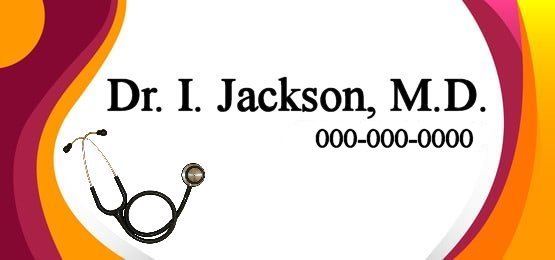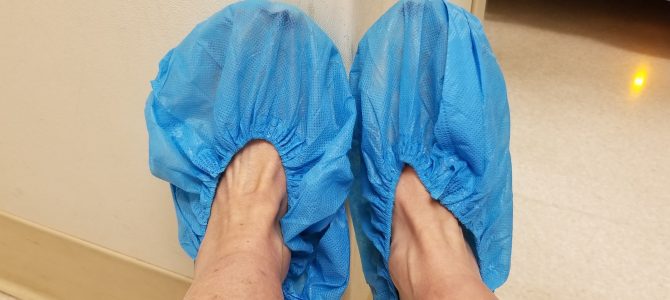Since my recent surgery went so well, I was pretty much prepared for smooth sailing back into my regular life. That is, until I realized that I needed a follow up exam from my GP.
You see, I no longer have a GP. Our family doctor retired at the end of August. He was in his 70’s, and with COVID-19 making its way through the population, he was convinced that it was time to go. Many other patients have found themselves in the same situation in the last few years. Their doctors have retired with no one willing to take over the practice.
So I was pretty much left on my own to try and figure out what to do. I took my paperwork for a follow up ECG and bloodwork to a local medical lab and got that done. And after a few anxious phone calls and emails, I found a doctor at a clinic who agreed to give me an appointment to go over the results with me. Phew.
Still, having given it some serious thought, I’ve decided that the obvious thing for me to do is to open up my own practice. Dr. Jackson has a nice ring, doesn’t it? Just to be clear, I will be my one and only patient. I wouldn’t be able to afford the malpractice insurance.
I would need a stethoscope and a white coat, but I think I’ve seen them both online through Walmart. I mean, you first have to LOOK the part, no? That and a little Dr. Kildare swagger, and I’ll have it down.
Sorry. Dr. Kildare is a reference that probably only makes sense to those of us who’ve seen a black and white TV. In person.
For so many of us, this is what it has come down to. We are shifting away from being able to entrust our health and our medical history to one person, to having to become our own health advocates instead.
One positive is that there is new technology now to help us deal with these changes. Babylon Health is an app you can download that matches you up with a BC licensed doctor via a video call. You can renew prescriptions or discuss symptoms and even get referrals through them.
LifeLabs has an app that helps you to find any openings at their local labs, and even book a time to get any testing that you need done. There is also my ehealth which is essentially an electronic health information service. When you sign up for an account, you can access the results of any tests you have done, from blood tests to ECGs, to mammogram results.
And, of course, there are still the walk in clinics. It’s just that they’re not as easy to “walk in” to these days because of COVID-19 restrictions, and because they’re just so darn busy.
But for many of us, there is no Overseer. No one to say, hey, we haven’t taken a stool sample or blood tests, or performed a prostate exam for awhile. Let’s get that done. There is no one who knows you and your family really well because they’ve pretty much seen you through every illness, pregnancy, or broken leg in your life. That person just doesn’t exist anymore.
Nurse practitioners may become the GPs of the future. They are nurses, but with added education and experience that enable them to diagnose and treat illnesses, interpret test results and even perform some medical procedures. There is a new nurse practitioner office opening up on Yates here in Victoria soon. I applied for my husband and myself to get in there, but no call so far.
So I am left on my own to diagnose and follow up, and do whatever else I need to do to maintain my health. I have ordered a digital copy of my medical records, downloaded all the medical apps, and signed up for an ehealth account. I will resist the temptation to Google my symptoms, but I’ve made lots of notes. I’ve got a blood pressure monitor, Pepto Bismal, and bandaids. I’m all set.
It’s just that I can’t read my writing.


